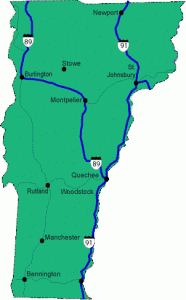Vermont Tax
Vermont State Tax
Vermont Income Tax
 Different states have different tax laws. As such, great differences may appear between one state and the next. For one, Vermont has higher taxes compared to most so neighboring states. Past surveys found Vermont to be one of the states with the highest tax burdens in the country.
Different states have different tax laws. As such, great differences may appear between one state and the next. For one, Vermont has higher taxes compared to most so neighboring states. Past surveys found Vermont to be one of the states with the highest tax burdens in the country.
Like in most states, Vermont residents are subject to different types of taxes including income tax, sales tax, and property tax.
Vermont Income Tax
The amount of income tax to be filed in the income tax return depends on which bracket the taxpayer’s income belongs to. The highest income tax rate for individual filers in Vermont is 8.95% for incomes $379,150 and beyond. Vermont has the 6tth highest maximum income tax rate in the United States.
Vermont has a three-tier corporate income tax system. Corporations pay 6% corporate tax for the first $10,000 of taxable income; 7% for the next $15,000; and 8.5% for any succeeding amount.
Vermont Sales Tax
The basic sales tax rate in Vermont is 6%. Certain necessities such as raw food, fuel, electricity, prescription drugs, and clothing items below $110 are exempt from this tax. Counties and municipalities are allowed to levy additional local taxes on top of the state-wide sales tax. Purchases of alcoholic beverages, motor vehicles, and restaurant meals are subject to higher special tax rates.
Vermont Property Tax
Property tax rates in Vermont vary by location. The state collects one of the highest median property income tax rates in the country. Property taxes comprise about 5.55% of Vermont residents’ yearly income.

